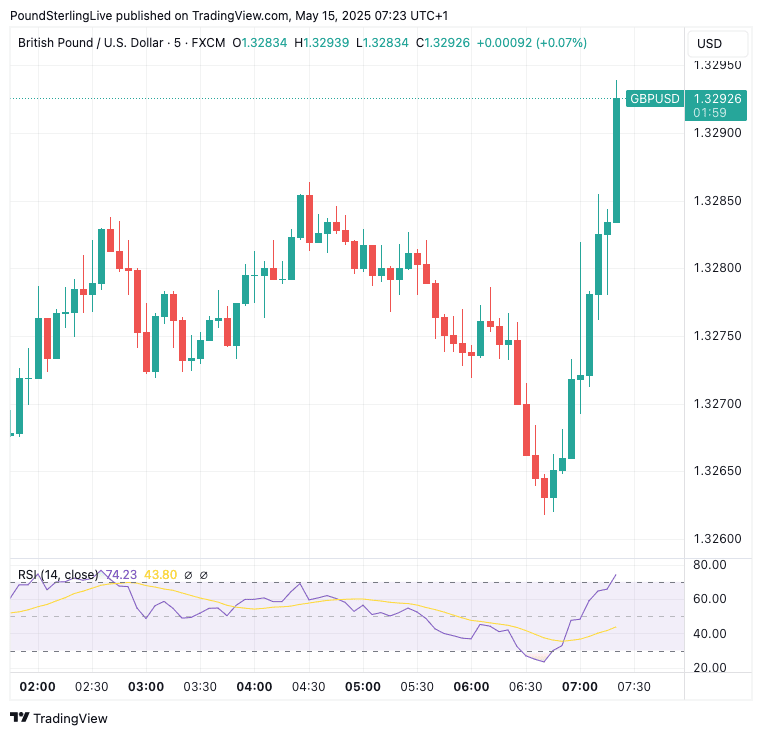
Image © Adobe Images
The British Pound's recent advances will be underpinned by a surprisingly strong domestic economic growth report.
UK GDP rose 0.7% in the first quarter of the year said the ONS, surpassing estimates for 0.6% and making for a genuine improvement on the previous quarter's stale 0.1% print.
The surprise sent the annual rate of increase for the quarter to 1.3% y/y, which was ahead of expectations for 1.2% but below the previous quarter's 1.5%.
The Pound to Euro exchange rate edged higher to 1.1864 from 1.1850 following the release, while the Pound to Dollar rate rose from 1.3262 to 1.3284.
Although the immediate daily moves in Sterling are not massive, they will cement recent gains made by the Pound against both the Euro and Dollar and will keep the door open to further advances.
"The recent run of economic data has been positive for the pound," says Derek Halpenny, FX analyst at MUFG Bank Ltd. "Based on the BoE’s trade-weighted index, the pound this week returned close to the highs seen toward the end of April, which were the strongest levels for the pound since the Brexit referendum in 2016."
Above: GBP at 5-minute intervals showing the FX market response to the UK GDP print.
Gains by Pound Sterling confirm that market participants see these data as negating the need for another Bank of England interest rate cut in June.
It will also cement the Bank of England's cautious message that hints that it will consider cutting interest rates at the established quarterly run rate.
For GBP, this is supportive, as analysts have long warned that a quickening in the pace of cuts would undermine the currency.
In short, the economic deterioration required to shift the dial at the Bank is yet to emerge.
The rise in GDP confirms survey data that suggested demand in the economy is strong enough to maintain pressure on inflation.
"Survey data suggest that aggregate demand is strong enough for companies to pass on much of the increase in wages (up 5.9% yoy in March) and payroll tax to customers in the form of higher prices, which would prevent core inflation slowing from its current pace of 3.4%," says Andrew Wishart, Senior UK Economist at Berenberg.
In fact, Berenberg thinks the nature of the economic data means the Bank will cut just once more in 2025, which would represent a 'hawkish' turn in events for markets that we read as being supportive of GBP upside.

